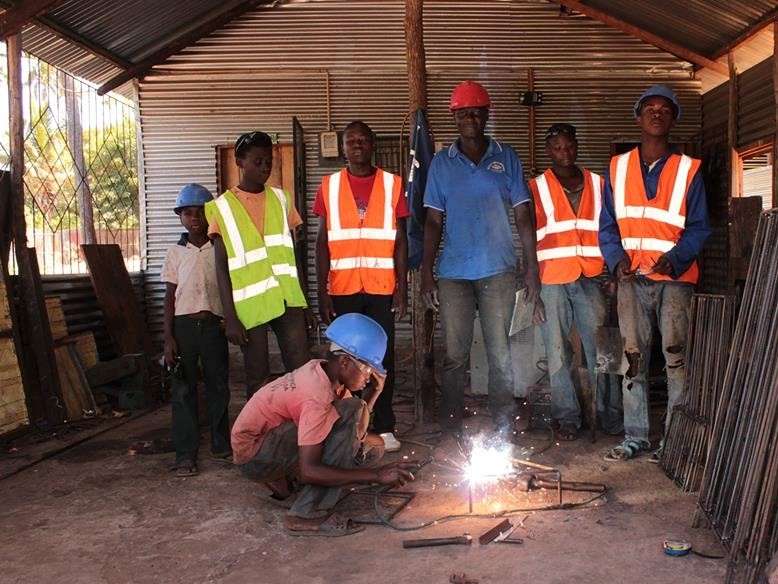Context: The youth constitute at least three in every ten of the population of Mozambique (National Statistical Institute, 2014). The youth in Mozambique contend with high rates of unemployment. This increased from 42% in 1991 to 42.8% in 2007 and 43% in 2014. The youth unemployment rate eased marginally to 42% in 2015 and 41.4% in 2016. This means that at least four in every ten youth in Mozambique are unemployed. Youth unemployment presents a sub-optimally utilized potential.
Implementation of programme/ initiative: The government of Mozambique launched the Fund to Support Youth Initiatives (FAIJ) in 2006. The Fund is aimed at building the capacity of the youth to identify and develop initiatives for job creation and self-employment. It enhances the employment chances of the youth by building their technical and financial capacity to design and manage income generation projects. The programme is implemented in all parts of the country with strong participation and partnership of the youth associations and networks. It has a strong screening and pre-qualification. The Fund targets the youth aged 18-35 years but with flexibility for those aged 15-17 years who are members of a youth association. All applicants of the Fund benefit from project management training. However, only those who qualify for inclusion in the programme benefit from financial and material support offered by the programme. The revolving loan funds offered to the beneficiaries under the programme are repayable at 5% interest with a grace period of one year.
Main challenges: Some of the challenges faced by the programme is that the Fund is not yet fully decentralized to the district level. The Fund is also yet to develop networks and partnerships through, which the FAIJ beneficiaries could be connected to various assistance networks for micro, small and medium-sized enterprises. It also suffers low turn-round rate due to slow processing of the loans and delays in repayment.
Results achieved: The Fund has so far received 50 million Meticais in budgetary allocation from the government. It has financed a total of 5,002 projects nationally, benefiting 21,665 youth directly. Up to 41.6% of the beneficiaries were women. A total of 30,044 young people of whom 70.8% (21,281) were women received training in small business management. The FAIJ programme has employment creation potential of 8.6% and a return on invested capital of about 22%.
Moving Forward: The focus of FAIJ is to increase the useful life of the projects it finances; ensure increased repayment levels; increase in the loan portfolio; enhance coverage to all districts; and increase financial inclusion amongst the youth.
Replicability: This project began as a centralized planning model in Mozambique and is now implemented in Angola, Democratic Republic of Congo and South Africa.
| References | World Bank (2017). Youth Unemployment Rate for Mozambique [SLUEM1524ZSMOZ], retrieved from FRED, Federal Reserve Bank of St. Louis; https://fred.stlouisfed.org/series/SLUEM1524ZSMOZ, September 19, 2017 |
Project Details
Date: November 20, 2017
